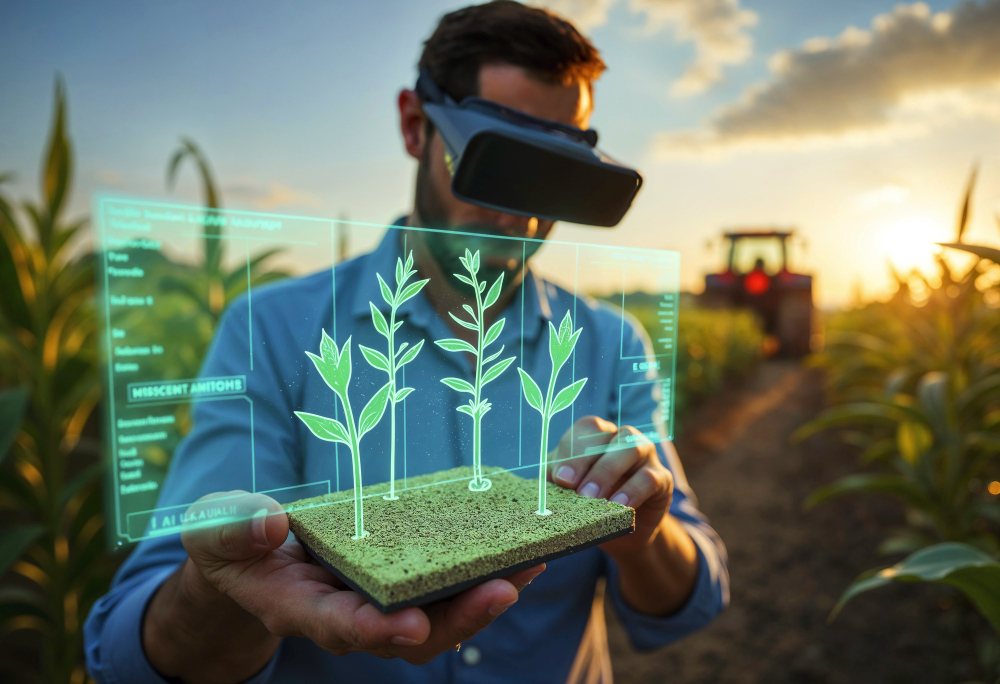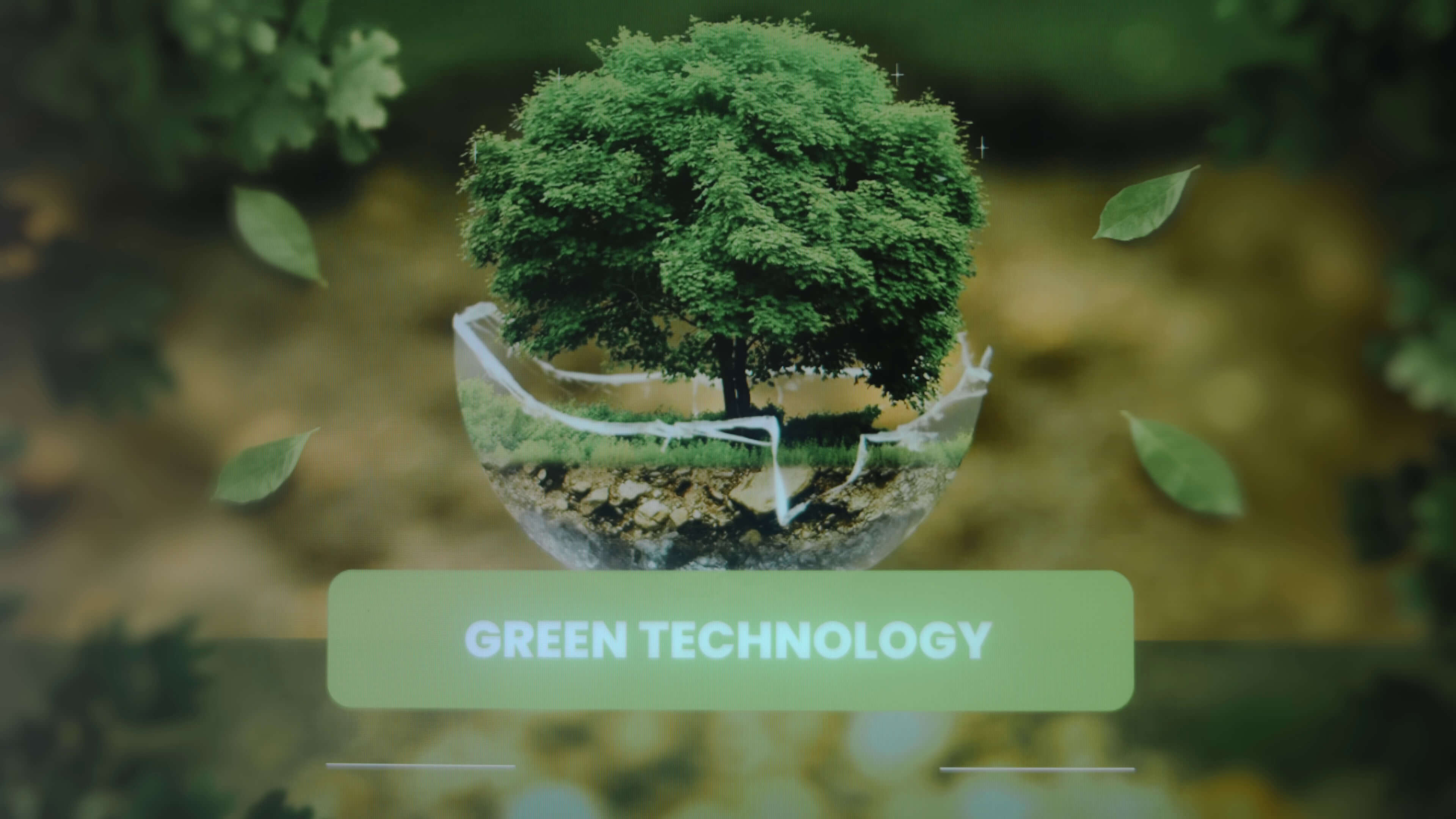Top Sustainable Technologies Transforming Industries Today
In today's rapidly changing world, sustainable technologies are not just a trend; they are a necessity. As industries across the globe face mounting pressure to reduce their environmental impact, innovative solutions are emerging to address these challenges. The urgency of climate change, resource depletion, and environmental degradation has pushed companies and governments to prioritize sustainable development goals. This article explores some of the top sustainable technologies transforming industries today, offering a glimpse into a future where eco-friendly practices are the norm.
With the growing awareness of environmental issues, there is a significant shift towards adopting technologies that not only meet current needs but also preserve resources for future generations. The integration of sustainable technologies is seen as a pivotal strategy in achieving long-term ecological balance and economic viability. As we delve into these technologies, we will explore their potential to revolutionize various sectors and contribute to a more sustainable planet.

Green technology, also known as sustainable technology, is designed to mitigate or reverse the effects of human activity on the environment. These technologies encompass a broad range of innovations that aim to reduce pollution, conserve energy, and promote the efficient use of resources. From renewable energy sources to eco-friendly gadgets, these innovations are paving the way for a more sustainable future. The rise of green technology is not only a response to environmental challenges but also an opportunity for economic growth and job creation in emerging green sectors.
Renewable Energy Sources
Renewable energy sources like solar, wind, and hydroelectric power are at the forefront of the green technology movement. These sources harness natural forces to generate electricity without emitting greenhouse gases. As technology advances, the efficiency and accessibility of these energy sources continue to improve, making them viable alternatives to fossil fuels. The proliferation of renewable energy technologies is also supported by policy incentives and declining costs, further accelerating their adoption across the globe.
The transition to renewable energy is crucial for reducing dependency on fossil fuels and mitigating climate change. Countries are investing heavily in renewable infrastructure, and innovations such as floating solar panels and offshore wind farms are expanding the possibilities of energy generation. As storage technologies like batteries improve, the reliability and stability of renewable energy systems will also enhance, making them a cornerstone of sustainable energy solutions.
Sustainable Technology Lifecycle Management
Sustainable technology lifecycle management involves designing products with their entire lifecycle in mind. This means considering the environmental impact from production through to disposal. Companies are increasingly adopting practices that ensure their products are recyclable or biodegradable, minimizing waste and conserving resources. By focusing on the full lifecycle of products, businesses can significantly reduce their carbon footprint and contribute to a circular economy where materials are reused and recycled.
Implementing lifecycle management practices requires a shift in mindset and operations. It involves redesigning products, optimizing supply chains, and engaging consumers in sustainability efforts. Innovations such as modular design and take-back programs are becoming more common, enabling consumers to return products for recycling or refurbishment. By prioritizing sustainable lifecycle management, companies can not only reduce environmental impact but also gain a competitive edge in a market that increasingly values sustainability.
Innovations in Sustainable Technology

Innovations in sustainable technology are not limited to energy production. They encompass a wide range of industries, from transportation to food production, each making strides toward a greener future. These innovations reflect a growing recognition that sustainability must be integrated into every aspect of production and consumption. By embracing new technologies, industries can significantly reduce their environmental footprint while meeting the demands of an eco-conscious market.
Sustainable Tire Technology
One notable innovation in the automotive industry is sustainable tire technology. For example, Sailun's EcoPoint3 tire technology aims to reduce environmental impact by using materials that are more sustainable and manufacturing processes that are more energy-efficient. This not only helps in reducing carbon emissions but also enhances the performance and durability of tires. By improving tire efficiency, manufacturers can contribute to fuel savings and reduced emissions, benefiting both consumers and the environment.
The development of sustainable tire technology also involves exploring new materials such as natural rubber alternatives and recycled components. These advancements offer the potential to decrease dependency on non-renewable resources and reduce waste. As consumer awareness of environmental issues grows, the demand for eco-friendly automotive solutions is expected to rise, driving further innovation in the sector.
Sustainable Food Technology
The food industry is also embracing sustainable practices. Sustainable food technology focuses on reducing waste and conserving resources throughout the food production process. This includes innovations like vertical farming, which uses less land and water compared to traditional farming methods, and lab-grown meat, which significantly reduces the carbon footprint associated with meat production. By reimagining food production, the industry can address issues of food security and environmental impact while providing nutritious options for a growing population.
The shift toward sustainable food technology involves a multifaceted approach, including improving supply chain efficiency, reducing food miles, and promoting plant-based diets. Technological advances such as precision agriculture and food waste reduction apps are empowering farmers and consumers to make more sustainable choices. As these technologies become more widespread, they have the potential to transform the food industry into a more sustainable and resilient system.
Clean and Ethical Technology
Clean technology and ethical technology go hand in hand in promoting sustainability. Clean tech refers to products, services, or processes that reduce waste and require as few non-renewable resources as possible. Ethical technology ensures that these innovations are accessible and beneficial to all, promoting social and environmental justice. By aligning technological advancements with ethical considerations, industries can ensure that sustainability efforts are inclusive and equitable.
The integration of clean and ethical technology involves addressing issues such as data privacy, equitable access to resources, and the fair treatment of workers. As companies develop new technologies, they must consider the broader social implications and strive to create solutions that benefit communities and the environment. By prioritizing ethics in technology development, businesses can foster trust and build stronger relationships with consumers and stakeholders.
Eco-Friendly Gadgets and Solutions

The demand for eco-friendly gadgets is on the rise as consumers become more conscious of their environmental impact. From smart thermostats that optimize energy use to biodegradable phone cases, these gadgets are designed to reduce waste and conserve energy. The growing popularity of eco-friendly gadgets reflects a shift in consumer preferences toward products that align with their values and contribute to a sustainable lifestyle.
Sustainable Gadgets
Sustainable gadgets are electronic devices designed with eco-friendliness in mind. They are often made from recycled materials and are energy-efficient, reducing their overall environmental impact. Some popular examples include solar-powered chargers and energy-efficient LED lighting. By choosing sustainable gadgets, consumers can minimize their carbon footprint and support companies that prioritize environmental responsibility.
The development of sustainable gadgets also involves innovation in materials and design. Companies are experimenting with biodegradable plastics, recycled metals, and modular designs that extend product lifespan. As technological advancements continue, the range of eco-friendly gadgets is expected to expand, providing consumers with more options to integrate sustainability into their daily lives.
Eco Tech Solutions
Eco tech solutions are comprehensive approaches that integrate sustainable practices into everyday life. These solutions often involve smart home technologies that allow users to monitor and reduce their energy consumption, ultimately leading to a lower carbon footprint. By adopting eco tech solutions, individuals can make informed decisions about their energy use and contribute to a more sustainable future.
The implementation of eco tech solutions requires collaboration between technology developers, consumers, and policymakers. Initiatives such as energy-efficient building codes and incentives for smart home installations are encouraging wider adoption of these technologies. As eco tech solutions become more accessible, they have the potential to transform how we interact with our environment and manage our resources.
The Future of Sustainable Innovation
As we look to the future, sustainable innovation will continue to play a crucial role in transforming industries. The development of new technologies and the improvement of existing ones will be essential in addressing the environmental challenges we face. By fostering a culture of innovation, businesses and governments can drive progress toward a more sustainable and resilient world.
Green Innovations
Green innovations are new ideas and technologies that aim to create a more sustainable world. These innovations can range from new materials that are biodegradable to advanced recycling processes that reduce waste. As more companies invest in green innovations, we can expect to see a significant shift toward more sustainable practices across industries. The successful adoption of green innovations relies on collaboration and knowledge sharing, enabling industries to learn from each other and scale sustainable solutions.
The potential impact of green innovations extends beyond environmental benefits. By fostering innovation, businesses can unlock new market opportunities, enhance their competitive advantage, and create jobs in emerging green sectors. As the global demand for sustainable solutions grows, green innovations will be at the forefront of economic and environmental transformation.
Sustainable Technology Solutions
Sustainable technology solutions encompass a wide range of strategies and practices designed to reduce environmental impact. These solutions often involve collaboration between businesses, governments, and communities to create a more sustainable future. By working together, stakeholders can develop comprehensive strategies that address the complex challenges of sustainability and drive meaningful change.
The implementation of sustainable technology solutions requires a systemic approach, integrating sustainability into policies, regulations, and business practices. Initiatives such as carbon pricing, green financing, and public-private partnerships are essential for scaling sustainable solutions and achieving global sustainability goals. As these efforts continue, they will contribute to a more sustainable and equitable world for future generations.
Sustainable Technology Jobs
The rise of sustainable technologies has also led to an increase in sustainable technology jobs. These jobs focus on developing, implementing, and maintaining green technologies, offering new career opportunities in a rapidly growing field. As more industries embrace sustainability, the demand for skilled professionals in this area is expected to continue to grow. The transition to a green economy requires a workforce equipped with the skills and knowledge to support sustainable development.
Education and training programs are crucial for preparing the workforce for sustainable technology jobs. By investing in education, governments and businesses can ensure that workers have the skills needed to succeed in a green economy. As sustainable technology continues to evolve, the job market will expand, providing opportunities for individuals to contribute to a more sustainable future.
Conclusion
In conclusion, sustainable technologies are transforming industries in profound ways. From renewable energy sources to sustainable food technology, these innovations are paving the way for a more sustainable future. As we continue to face environmental challenges, the importance of adopting green technologies and practices cannot be overstated. By embracing these innovations, industries can reduce their environmental impact, conserve resources, and contribute to a healthier planet for future generations.
Incorporating sustainable technologies into our daily lives and industries is not just an option; it is a necessity for a sustainable future. As we move forward, it is crucial for businesses, governments, and individuals to work together to support and implement these technologies. By doing so, we can create a world where sustainability is at the core of our actions, ensuring a better future for all. The collective efforts of all stakeholders will be instrumental in driving the transition toward a sustainable, resilient, and equitable future.






